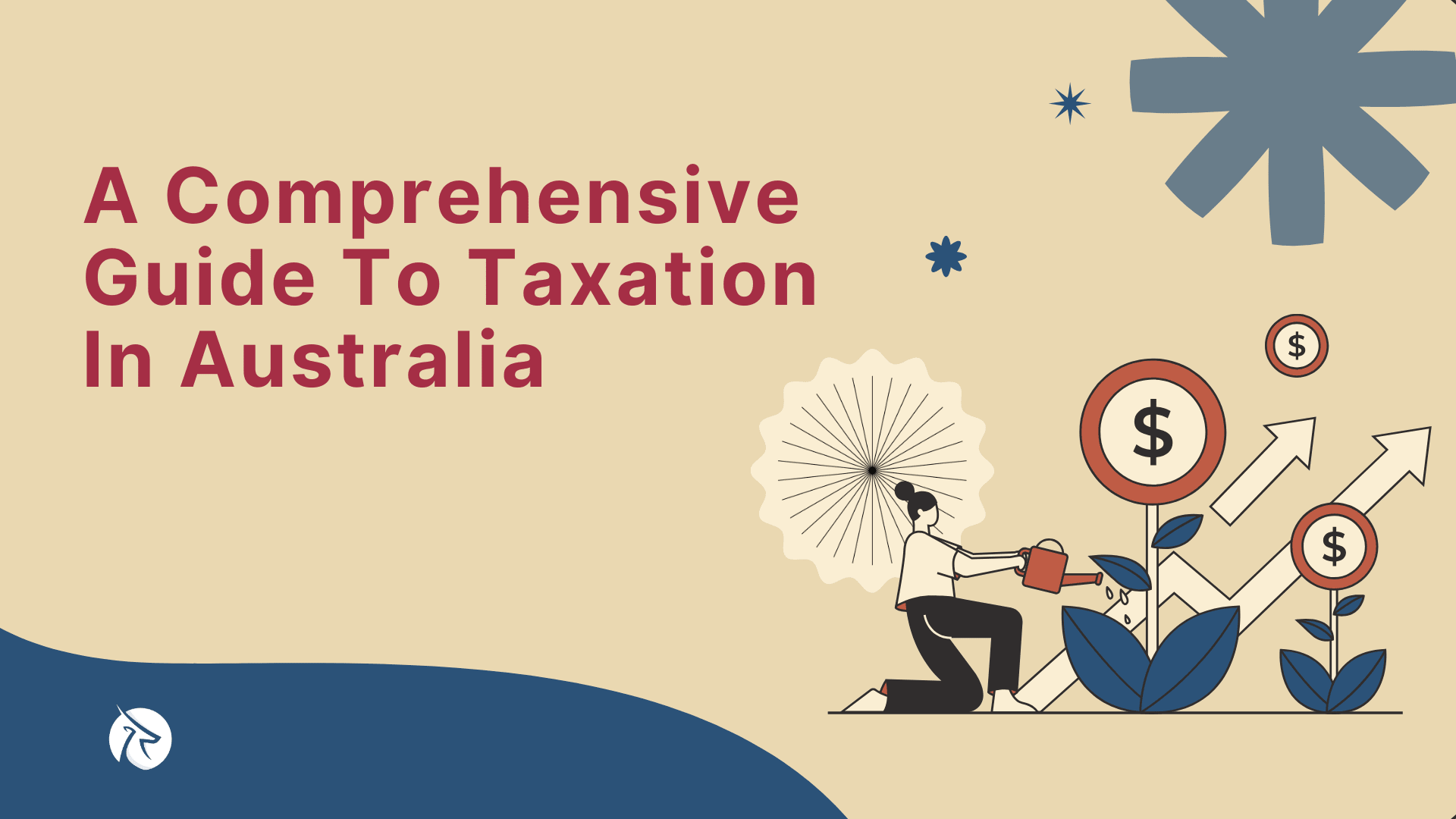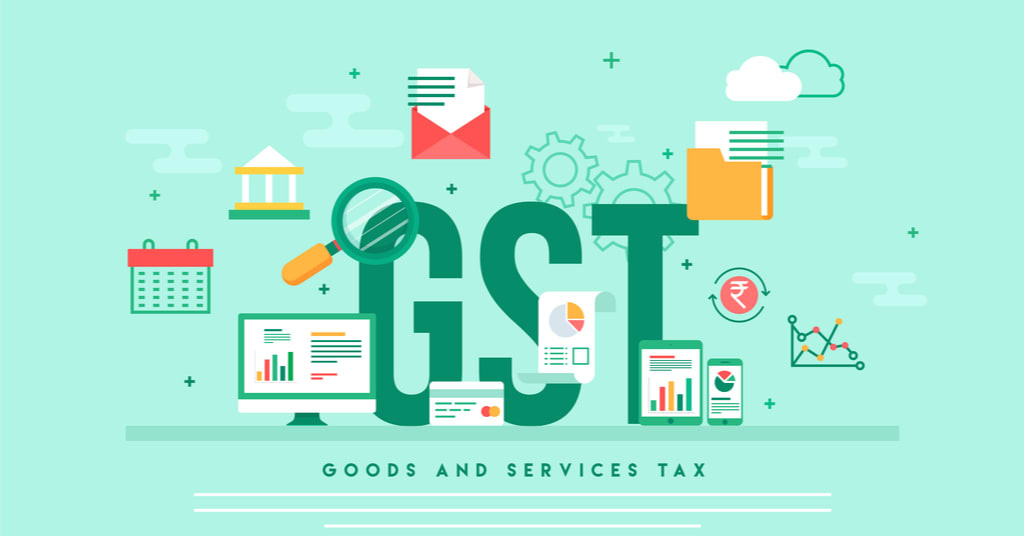A Comprehensive Guide To Taxation In Australia

Are you a new startup owner in Australia? Feeling overwhelmed by Australian taxes? This comprehensive guide from Fordeer breaks down everything you need to know, from income tax and capital gains to GST and superannuation. Get informed, stay compliant, and avoid unnecessary stress!
Overview of Tax in Australia
What is taxation, and why is it important?
Ever wondered how roads get paved, schools stay open, and healthcare systems function? It's all thanks to a little thing called taxation! In Australia, taxes are the primary way the government generates revenue to fund essential public services and infrastructure.
Think of it as a collective contribution, ensuring everyone benefits from things like education, healthcare, national defense, and social programs. While paying taxes might not be the most thrilling activity, understanding how they work in Australia empowers you to navigate the system effectively.
This comprehensive guide delves into the different types of taxes, from income and capital gains to GST and superannuation, explaining their purpose and how they apply to you. It also equips you with resources and support options to ensure you're meeting your obligations and claiming all eligible deductions.

Remember, a well-informed taxpayer is a responsible citizen, contributing to a stronger and more prosperous Australia for everyone. So, dive into this guide, unlock the secrets of the Australian tax system, and gain peace of mind knowing you're playing your part in building a better future.
Overview of the Australian tax system: federal and state taxes
Australia's tax system operates like a layered cake, with federal and state taxes each carving off their respective slices. At the federal level, the biggest slice comes from income tax, where your earnings are taxed progressively, meaning the higher you earn, the greater the percentage you pay (up to 45%).
This tax also comes with a handy tax-free threshold, meaning you get to keep the first chunk of your income tax-free. Additionally, you get to claim deductions for certain expenses to reduce your taxable income. Other federal taxes include capital gains tax (CGT) on profits from selling assets, and the Goods and Services Tax (GST), a 10% levy on most goods and services.
Now, onto the state layer. Each state adds its own flavors to the tax cake, primarily through payroll tax applied to businesses based on their employee wages, and stamp duty charged on property transactions. Some states also have land tax on unimproved land values. These state taxes vary slightly in rates and rules, so understanding yours is crucial.
Navigating this multi-layered system can feel daunting, but remember, the ATO (Australian Taxation Office) is your guide. They provide resources, and online tools, and they even offer support through phone consultations. Additionally, tax professionals can help you navigate the complexities and ensure you're maximizing deductions and minimizing your tax burden.
Kinds of Key Taxes in Australia
Income Tax
In Australia, navigating the income tax landscape can feel like solving a complex code. Understanding the key elements is crucial for fulfilling your obligations and maximizing your deductions. Firstly, familiarize yourself with the tax brackets and rates, which determine how much tax you owe based on your taxable income. The tax-free threshold sets the minimum income level exempt from taxation, providing relief for lower earners.

Next, explore the various deductions available, which reduce your taxable income and, consequently, your tax burden. These can include work-related expenses, charitable donations, and superannuation contributions. Finally, comes the task of reporting income and lodging tax returns. The Australian Taxation Office (ATO) website provides resources and guides to walk you through this process, ensuring accurate reporting and timely submission.
Capital Gains Tax (CGT)
Ever sold an asset for more than you bought it for? In Australia, that profit might be subject to Capital Gains Tax (CGT). This tax applies to various assets like shares, property (excluding your main residence), and even valuables like jewelry or artwork. When you sell, you calculate the net capital gain (sale price minus cost and expenses) and potentially pay tax on a portion of it.
The good news is, that you might qualify for exemptions or concessions like the 50% discount for holding the asset for at least a year. Calculating your CGT involves understanding cost-based adjustments, record-keeping, and potentially seeking professional advice. While navigating CGT can seem complex, remembering that it applies to profits, offers exemptions, and has reporting requirements should help you stay informed and prepared.
Goods and Services Tax (GST)
If you're navigating the Australian tax landscape, Goods and Services Tax (GST) is likely to be on your radar. This broad-based tax of 10% applies to most goods, services, and other items consumed in the country. But who pays it, and how?

Firstly, not all businesses handle GST. You only need to register if your annual turnover exceeds $75,000 (or $150,000 for non-profits). If registered, you collect GST on your sales and then remit it to the Australian Taxation Office (ATO). So, the next time you pay $11 for a coffee, $1 of that goes to GST.
But here's the twist: registered businesses can also claim "input tax credits" for GST they pay on their own business expenses. For example, if you buy office supplies that include GST, you can claim that part back when you lodge your tax return. This creates a system where, ultimately, only the final consumer bears the GST burden.
Understanding input tax credits is crucial for registered businesses, as they can significantly reduce their overall tax liability. It's important to carefully track and record all eligible expenses to maximize your claims.
Other Taxes
Beyond the mainstays of income tax, GST, and capital gains, navigating the Australian tax landscape involves several additional considerations for businesses. Here's a breakdown of some lesser-known, yet crucial, taxes:
- Payroll tax: This state-based levy applies to employers exceeding a specific wage threshold. Rates vary across states, with implications for business location and operational costs. Understanding this tax is crucial for responsible budgeting and managing cash flow.
- Stamp duty: Triggered by transferring land ownership, this tax adds a significant cost to property transactions. Rates and exemptions vary depending on the state, property type, and even buyer characteristics. Careful planning and understanding of stamp duty implications are essential for informed property decisions.
- Fringe benefits tax (FBT): Employers offering non-cash benefits like company cars, healthcare, or discounted travel may be subject to FBT. Calculating and reporting this tax adds complexity, so seeking professional guidance is recommended to ensure compliance and avoid penalties.

Tax Administration and Compliance in Australia
The Australian Tax Office (ATO) and its role
The Australian Tax Office (ATO) plays a central role, in administering and collecting various taxes like income, capital gains, and GST. They provide resources and support, like the ATO website and qualified tax professionals, to help you understand your obligations, file returns accurately, and stay compliant. While deadlines and record-keeping are crucial, remember that the ATO also offers assistance programs and aims for fair and transparent administration.
Lodging tax returns and meeting deadlines
In Australia, navigating the tax system involves more than just understanding different tax types. Tax administration and compliance play a crucial role in fulfilling your obligations. This involves lodging tax returns by designated deadlines, which vary depending on your circumstances.
The Australian Tax Office (ATO) provides various channels for submission, including online, paper forms, and tax professionals. Meeting deadlines is crucial to avoid penalties and interest charges. Beyond returns, record-keeping is essential. Store receipts, invoices, and other relevant documents for several years to support your claims and be prepared for potential audits.
These types of taxes are very complicated, aren't they? Many sellers have had trouble creating invoices, but don't worry, we're here to help you with our tool -
Fordeer: PDF Invoice Generator. It won't let you down with its automatic tax calculation feature in your customers' invoices!
Record-keeping requirements
The Australian Tax Office (ATO) requires individuals and businesses to keep accurate and accessible records for at least five years from lodgement, with some exceptions requiring even longer retention periods. These records should support the information declared in your tax returns and include income and expense details, receipts, invoices, bank statements, and asset purchase/sale documentation.

Maintaining organized records not only simplifies tax preparation but also equips you to respond to potential ATO inquiries, reducing stress and ensuring compliance. Remember, digital copies are acceptable, but they must be true and clear representations of the originals. By taking record-keeping seriously, you can confidently fulfill your tax obligations and avoid unnecessary complications.
Audits and Penalties
The Australian Tax Office (ATO) conducts various audits, ranging from simple data checks to in-depth investigations. While most audits aim to clarify discrepancies, neglecting your tax obligations can trigger penalties, impacting your finances and potentially leading to prosecution.
Staying informed and organized is key. You should keep accurate records, understand your reporting deadlines, and utilize the ATO's online tools and resources. If you receive an audit notification, seek professional advice and cooperate fully with the ATO. Addressing any issues promptly minimizes the risk of hefty penalties. Remember, the ATO offers various support programs and payment gateway to help you navigate complex situations.
Conclusion,
While taxation might seem daunting, understanding the key elements opens doors to informed financial decisions. This guide has equipped you with essential knowledge, empowering you to navigate the Australian tax system confidently. Remember, resources abound, and seeking professional advice ensures optimal outcomes. Stay informed, comply diligently, and reap the rewards of responsible tax management.











